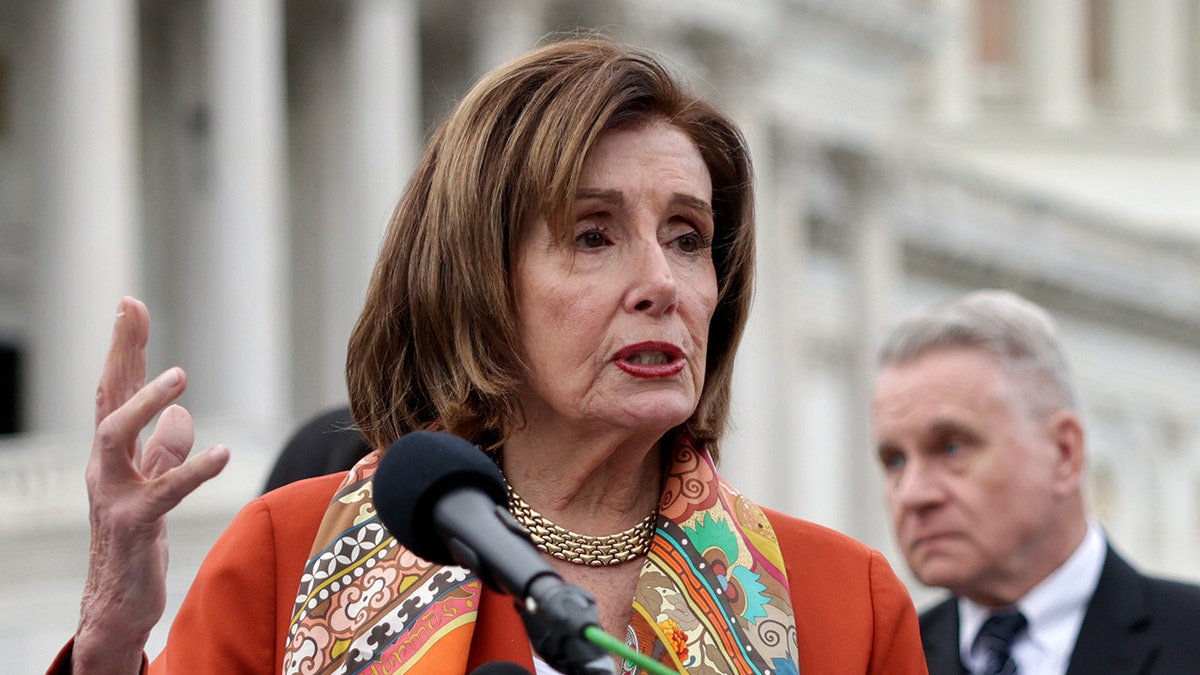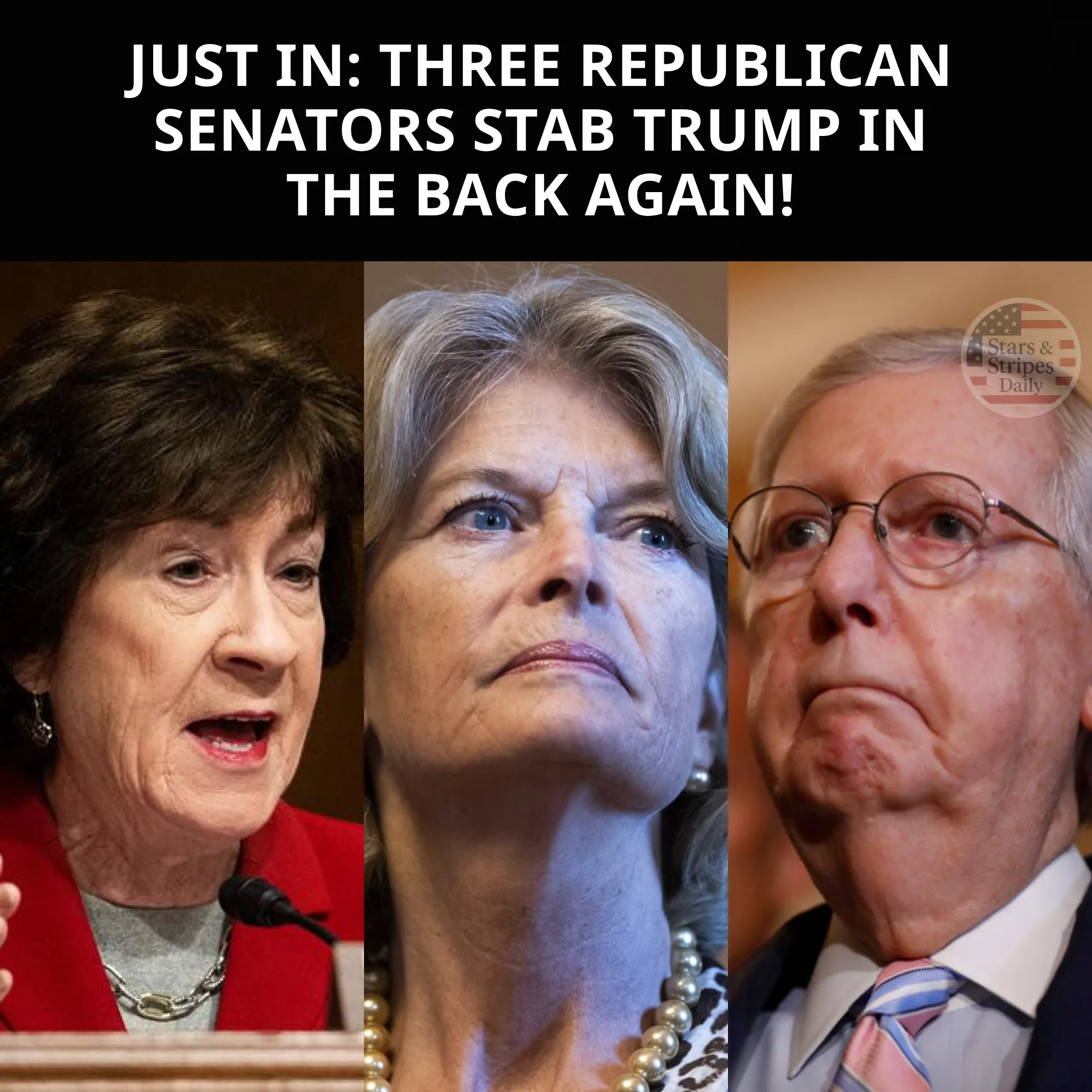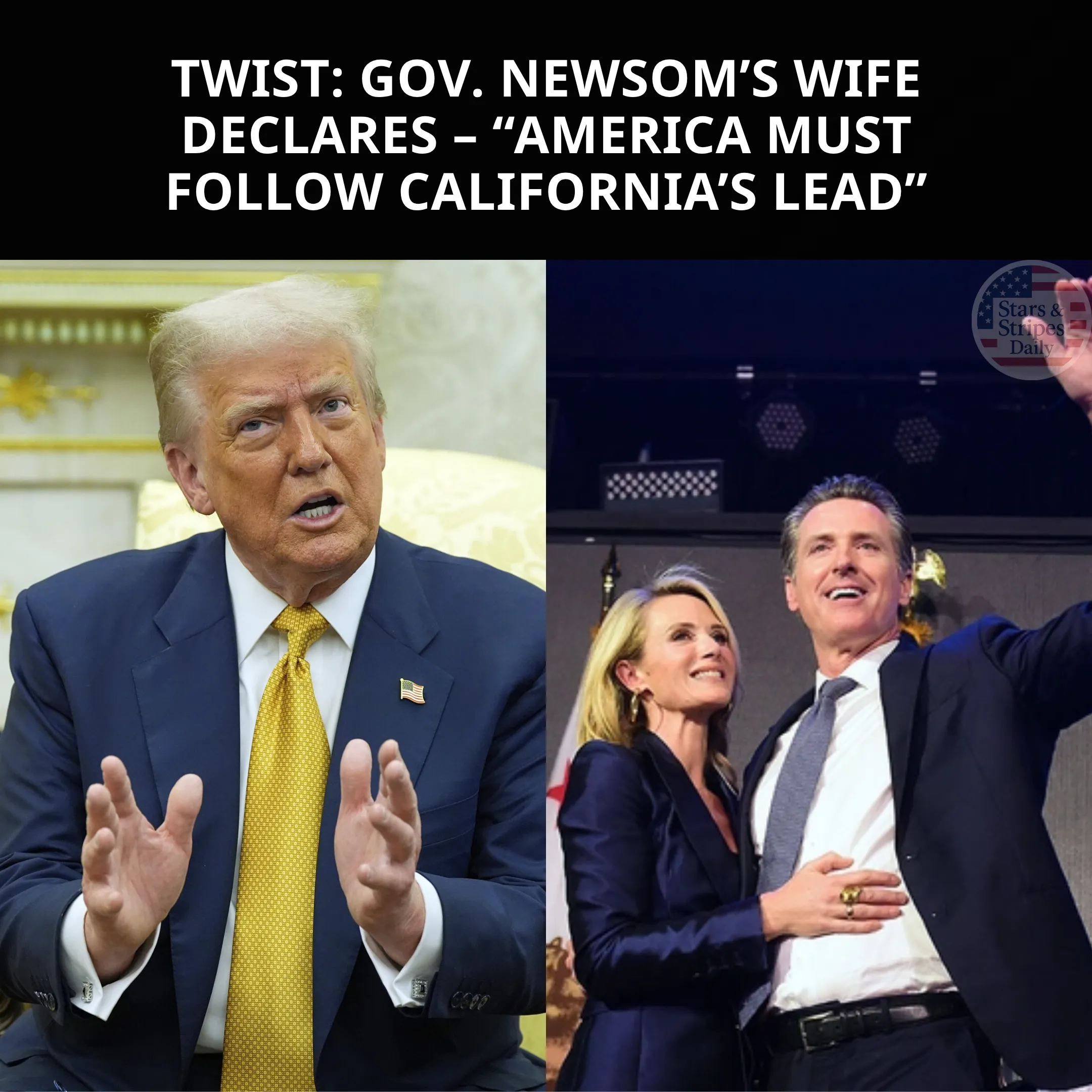Former House Speaker Nancy Pelosi briefly lost her composure during a press scrum this week, snapping at a reporter who suggested that Representative Alexandria Ocasio-Cortez and the progressive “Squad” may be steering Democratic strategy amid an ongoing government shutdown.
The tense exchange underscored the high-pressure atmosphere surrounding congressional negotiations and the struggle of party leaders to present a unified front as Republicans and Democrats clash over spending and healthcare.
The incident came after Ocasio-Cortez invited Senate Democrats to visit her office and hear directly why she believes the party should stand firm during the shutdown.
Republicans quickly seized on her comments, claiming that the New York congresswoman was calling the shots rather than Minority Leader Hakeem Jeffries.
When a reporter raised that talking point to Pelosi, she waved her hand dismissively and bristled. “Why are you saying such a ridiculous thing?” Pelosi snapped.
“I’m just quoting what AOC said: go to her office directly,” the reporter pressed. “Do you think there’s any credibility to that?”
Visibly frustrated, Pelosi furrowed her brow and shot back, “She is not directing this. She’s wonderful, she’s a… a team player and the rest of that.”
She continued, “You started by saying Republicans saying that she’s directing this. She is not. Hakeem Jeffries is.” Pelosi then stressed Jeffries’ “experience” and ability to unify Democrats while describing Ocasio-Cortez as “an articulate person for her point of view.”
The finger-wagging moment immediately made headlines, reflecting the ongoing tension between establishment Democrats and their younger, more progressive colleagues, as well as the growing strain of a shutdown battle that has left both parties scrambling to shape the narrative.
The confrontation unfolded as Congress failed to pass a funding resolution to keep the government open. While the House had approved a short-term plan pushed by Speaker Mike Johnson to extend funding through November 21, Senate Democrats rejected the measure, citing Republican cuts to Affordable Care Act subsidies.
Republicans countered by accusing Democrats of seeking to funnel taxpayer money toward healthcare benefits for undocumented immigrants. They argued that ambiguous language around asylum seekers and migrants in legal limbo could open the door to subsidized coverage.
Democrats framed their position as defending affordable healthcare for millions of Americans. Progressives like Ocasio-Cortez urged the party to resist pressure and maintain a hard line, even if that meant prolonging the shutdown.
It was in this context that Pelosi found herself defending Jeffries against Republican taunts that AOC, rather than the minority leader, was directing Democratic resistance.
Pelosi, who led House Democrats for two decades before stepping aside in 2023, has consistently emphasized unity and institutional discipline. Her quick defense of Jeffries reflected both loyalty to her successor and concern about perceptions of a fractured caucus.
“Hakeem Jeffries is the leader,” Pelosi said firmly. “He has the experience, he has the vision, and he has the ability to unify our caucus. Representative Ocasio-Cortez is an articulate person for her point of view, but let’s be clear about who is directing our strategy.”
Pelosi’s comments appeared aimed at squashing Republican attempts to drive a wedge between moderates and progressives. Still, the sharpness of her exchange with the reporter highlighted just how sensitive the issue has become for Democratic leadership.
Even as Pelosi sparred with the press, Democrats faced another challenge: President Donald Trump’s relentless messaging campaign. Hours before the shutdown went into effect, Trump held a high-profile meeting with Jeffries at the White House.

Afterward, Trump posted a photo on Truth Social showing himself pointing and laughing at Jeffries while offering him a Diet Coke and a red hat reading “Trump 2028.” The image, clearly designed as political theater, went viral among Trump supporters.
Republicans characterized the moment as a symbol of Democratic weakness, while Democrats decried it as childish mockery at a time of serious negotiations.
Trump also circulated an AI-generated video depicting Jeffries in a sombrero and oversized mustache alongside Senate Democratic Leader Chuck Schumer, who was shown declaring that “woke trans bulls**t” had alienated voters.
On MSNBC, Jeffries condemned the video as “bigoted” and accused Trump of peddling hate rather than leadership. “It’s a disgusting video, and we’re going to make clear, bigotry will get you nowhere,” Jeffries told Lawrence O’Donnell.
Republicans wasted no time amplifying the narrative that Democrats were being led by their progressive flank rather than by official leadership. Conservative commentators pointed to Ocasio-Cortez’s open invitation for Senate Democrats to meet with her as evidence of her outsized influence.
“The Squad is driving this shutdown, not Hakeem Jeffries,” one Republican strategist told Fox News. “Pelosi knows it, and that’s why she snapped. The reality is that Democrats are being dragged further left, and it’s tearing them apart.”
Speaker Johnson echoed this theme, arguing that Democrats were prioritizing ideological battles over responsible governance. “Instead of working with us to keep the government open, they’re listening to AOC and the Squad, who are demanding benefits for illegal immigrants,” Johnson said.
Progressives, however, framed their influence as a strength rather than a liability. Ocasio-Cortez and her allies argue that Democrats must hold firm against Republican attempts to cut healthcare subsidies and that standing united will ultimately benefit working-class families.

“Millions of Americans rely on the Affordable Care Act for their health coverage,” Ocasio-Cortez said in a statement. “We cannot allow Republicans to gut those protections and then turn around and blame us for the consequences. This shutdown is about defending people’s lives.”
For progressives, Pelosi’s defense of Jeffries was welcome but not entirely reassuring. Some activists worry that the leadership’s instinct to compromise could weaken their bargaining position. “We want Jeffries to be tough,” one progressive organizer said. “If AOC has to push him in that direction, so be it.”
The exchange between Pelosi and the reporter underscored the delicate balance Democrats face between projecting unity and accommodating internal differences. While Pelosi insists that Jeffries is firmly in control, Republicans have seized on every sign of division to portray Democrats as disorganized.
Political analysts note that Pelosi’s visible irritation may reflect the difficulty of maintaining discipline in a caucus that spans from moderates in swing districts to left-wing activists from deep-blue states.
“Pelosi built her career on enforcing unity,” one analyst said. “But in the current environment, with the Squad asserting itself and Republicans weaponizing every word, it’s a much tougher job for Jeffries to manage.”
At the core of the dispute is the question of healthcare subsidies and immigration policy. Republicans argue that Democrats are seeking to extend benefits to undocumented immigrants, a charge Democrats deny but which has resonated with parts of the public.
For Democrats, the fight is about preserving Obamacare subsidies and preventing Republicans from dismantling hard-won protections. For Republicans, it is about blocking what they see as taxpayer-funded giveaways to non-citizens.
With the government shuttered and no clear resolution in sight, the political stakes are enormous. Both parties are maneuvering to avoid blame, knowing that public opinion could shape the outcome of the 2026 midterm elections.
Pelosi’s outburst also raised questions about her ongoing role within the Democratic Party. Though she stepped aside as leader after the 2022 elections, she remains a powerful voice and a symbol of Democratic resilience.
Her defense of Jeffries suggested both a desire to protect her successor and an unwillingness to let Republicans define the narrative. Yet her testy exchange also showed the limits of even her formidable discipline under the intense pressure of a shutdown.
“Pelosi has always been a fighter,” one Democratic aide said. “But even fighters get frustrated when the same bad-faith talking points are repeated over and over.”
The finger-wagging moment when Nancy Pelosi snapped at a reporter during a Capitol Hill scrum captured the tension of a government shutdown that has exposed Democratic divisions and energized Republican attacks.
By defending Hakeem Jeffries and dismissing suggestions that Alexandria Ocasio-Cortez is calling the shots, Pelosi sought to reinforce party unity.
Yet the incident also highlighted the challenges facing Democratic leadership as they balance the demands of progressives with the need to present a coherent negotiating strategy. Meanwhile, Trump’s trolling and Republicans’ relentless messaging have kept Democrats on the defensive.
As the shutdown drags on, the battle over who controls the Democratic agenda — and how the public perceives that control — may prove as consequential as the funding disputes themselves.

Pelosi’s sharp rebuke of a reporter was just one skirmish in a larger war of narratives that will shape both the resolution of the shutdown and the future direction of the Democratic Party.






